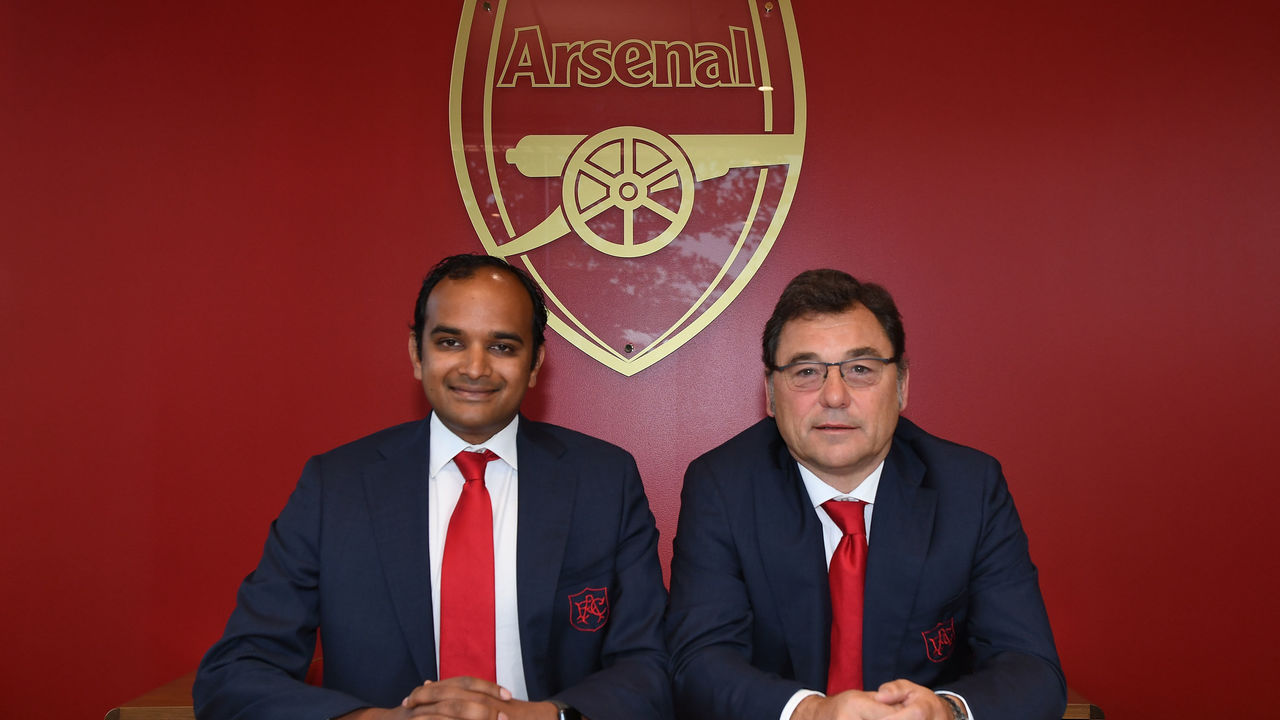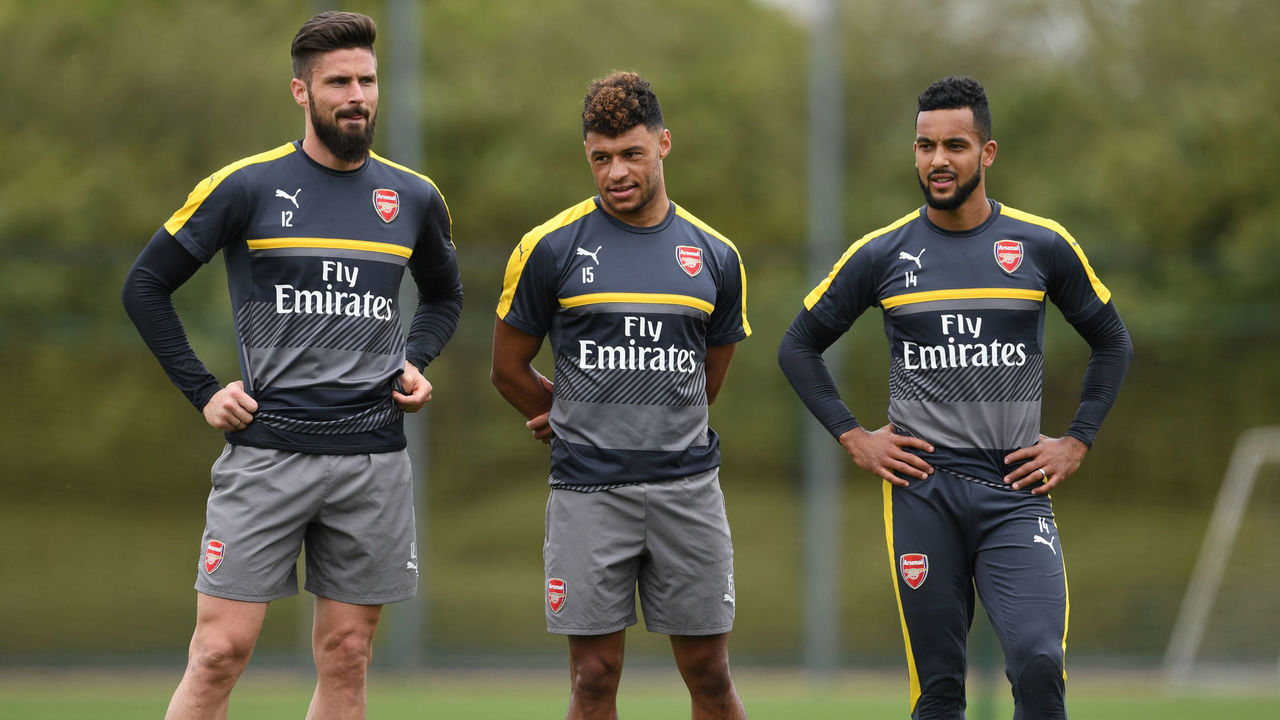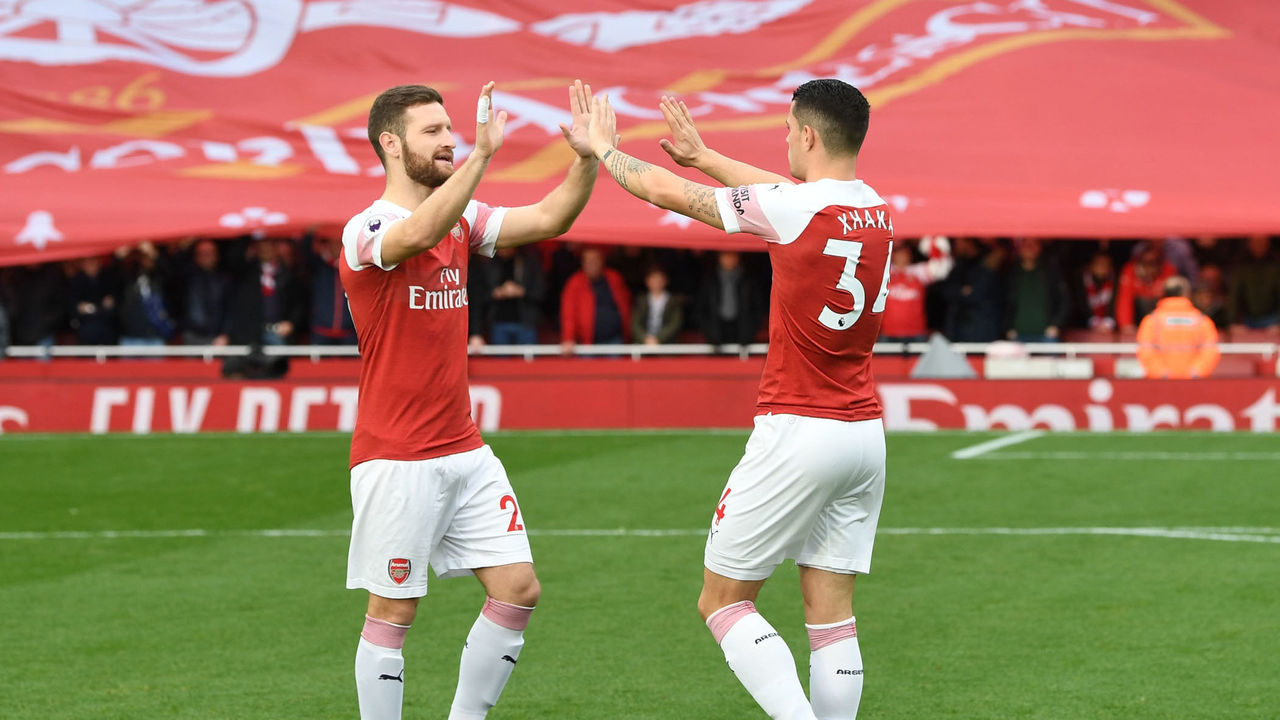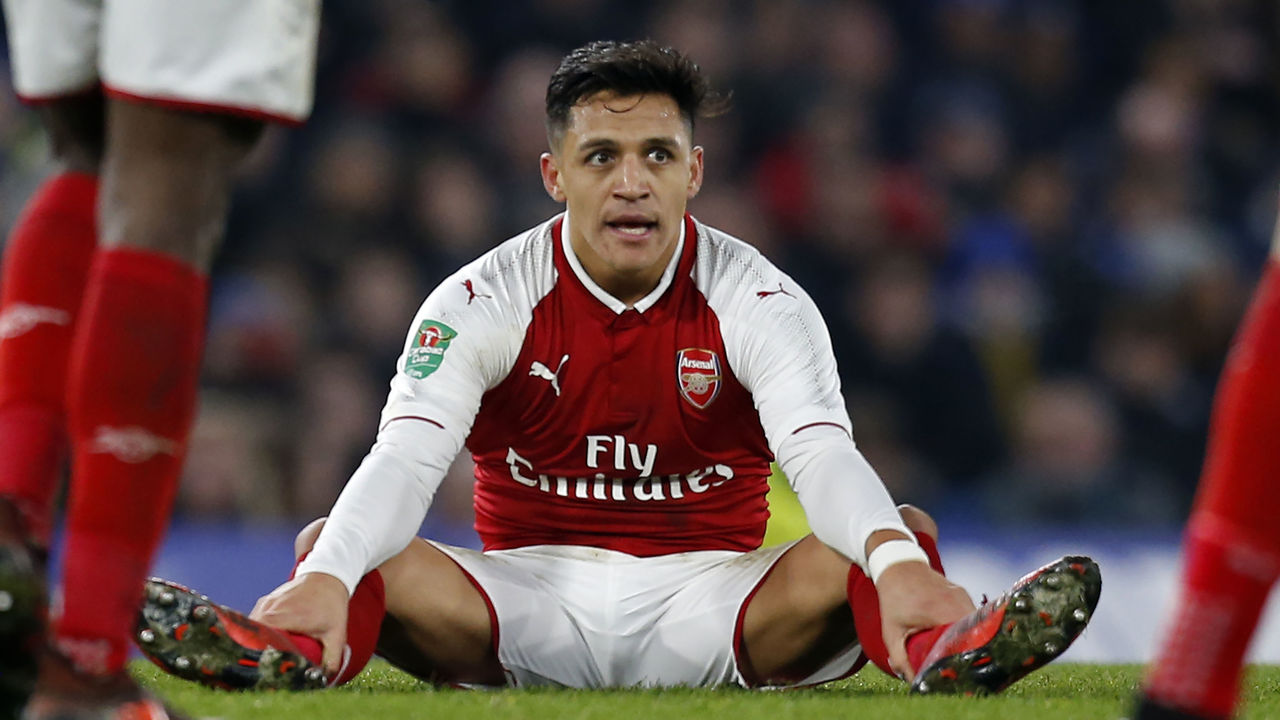Continued chaos: Loans, Ramsey, and Mislintat mark more Arsenal turmoil
Three incidents in the span of six days sparked a familiar uneasiness among the Arsenal faithful, hatching reactions spanning complete online hysteria to marginally more measured melancholy.
First, a reputable source reported Aaron Ramsey's summer move on a free transfer to Juventus. Mere hours passed before Unai Emery admitted the club's winter window was limited to loan moves. Days later, reports surfaced of an impending exit by scouting savant Sven Mislintat a little more than a year after joining the club.
It's worth mentioning that the January transfer period marks the first under Stan Kroenke's unanimous ownership, and the American businessman isn't exactly a revered figure in north London.
Suddenly, the pitchforks were out for the first time since the days preceding Arsene Wenger's April announcement.
Ramsey's departure and the manager's quotes are both admonitions of the struggles that characterized the last regime.
Without knowing all the details behind the Gunners' current situation, how should the average Arsenal fan feel about the state of the club off the pitch? Strap in - this may take a while.
The Good
It's a bit unfair to blame the current regime for the faults of the previous one. Wenger and his long-running grip on transfer matters are gone, as is former chief executive Ivan Gazidis, who hightailed it for AC Milan in the months following Wegner's departure.
Vinai Venkatesham and former Barcelona head of football relations Raul Sanllehi were appointed to split the duties, with the former as managing director and the latter as head of football. Mislintat was recruited from noted talent incubator Borussia Dortmund and the early signs were decent. That is, before Tuesday's worrying reports.

For the first time in an eternity, Arsenal got their summer business done swiftly last year, recruiting Bernd Leno, Sokratis, Stephan Lichtsteiner and Lucas Torreira early in the window with just Matteo Guendouzi joining during the period's later stages. A £7-million fee for the generously-maned 19-year-old Frenchman now looks like one of the steals of the summer.
Torreira, Guendouzi, and since-injured center-half Rob Holding (a bargain buy by the previous regime) have the look of future cornerstones, if not current ones. Pierre-Emerick Aubameyang and Alexandre Lacazette form one of the Premier League's best attacking pairings, and Hector Bellerin, Alex Iwobi, and Sead Kolasinac (a free signing) have all enjoyed bounce-back campaigns under the new gaffer.
Ainsley Maitland-Niles, Emile Smith Rowe, Joe Willock, Konstantinos Mavropanos, Eddie Nketiah, and Bukayo Saka lead a young core that signals a much-needed revived youth set-up. Arsenal can also turn a profit on some of these kids should Emery not envision them in the first team, a luxury provided by deploying unproven squads of youngsters in the Europa League and domestic cups. It's not all doom and gloom.
When Emery said Arsenal were restricted to loans in the January window, it was the admission of a manager in the process of learning English and known for pressers littered with Byzantine responses. It was also a remark that has been skewed into the perceived state of a club without money.
Arsenal have money. The incoming Adidas deal helps, as do the television contract and countless sponsorship agreements (visit Rwanda!). Wenger's £8-million final-season wage is set to come off the books, as are the wages paid to Ramsey, Lichtsteiner, Petr Cech, Danny Welbeck, and potentially Nacho Monreal. Even if Kroenke's purse strings are tight at times, qualifying for the Champions League is an increase in club revenues that also benefits the brass.
Emery's statement may factor in a tug-of-war with Barcelona over Denis Suarez. The manager has admitted his admiration for the player he managed for a season at Sevilla - a player Barcelona bought back from Villarreal for the sole purpose of selling. Sanllehi has also previously expressed frustrations with the winter window. Just because loans are the only option doesn't mean there's no money at Arsenal.
The Bad
Kroenke may very well be a cheapskate, but the club's failure to profit from players in recent transfer windows has been as great an impediment for the club.
Ramsey is the latest in a slew of transfer misgivings that largely outweigh positive activities - though Arsenal could have done worse than generate roughly £100 million for Alex Oxlade-Chamberlain, Theo Walcott, Olivier Giroud, Francis Coquelin, Gabriel and Kieran Gibbs last January.

The intimate details of Mislintat's departure may take time to surface but regardless of the reasons, it's not a good look. Rumblings suggest he's butted heads with Sanllehi and Emery over potential transfers, such as the Spanish duo's alleged interest in Suarez and Ever Banega. Mislintat is celebrated as a talent recruiter who operates outside the box and his CV is one of repeated enlistment success in Germany.
That the club loaned shot-stopper Wojciech Szczesny to Serie A for two seasons only to sell him to Juventus as Gigi Buffon's replacement for £11 million is enough to make an Arsenal supporter ill. Athletic Bilbao got £71 million for 24-year-old Kepa; surely the Gunners could have pocketed at least a third of that for an experienced 'keeper just four years the Spaniard's senior. There's also little proof Leno is better than Szczesny.
The club bought Lucas Perez from Deportivo La Coruna for £17 million in the waning moments of the 2016 summer window, but he was clearly never part of Wenger's plans. He made 11 league appearances and was sold to West Ham two summers later for £4 million. For those that skipped math in primary school, that's £1.18 million per Premier League appearance.
At least Gazidis got a few quid for the Spanish striker. Various degrees of perpetual injury saw the club get nothing for Jack Wilshere - a minor regret - and zilch for Santi Cazorla, a player who could be forgiven for returning to Villarreal on a free after nearly losing his foot following a career-defining injury. Similarly, Welbeck's season-ending ailment means the club can't collect a few million for him this January.
Not entirely the fault of the club are the numerous poor performances by loanees abroad who have or will fail to generate much interest. Sometimes players are sent to the wrong places. Chelsea loans Tammy Abraham out and all he does is score goals and raise an inevitable transfer fee. Arsenal buys players like Joel Campbell, Calum Chambers, Takuma Asano, and David Ospina and whatever potential sales exist for them are worsened with each passing performance.
The Ugly
Again, these are the transgressions of the previous regime, but there is nary a tabula rasa in association football. Like it or not, Emery's tenure at the club, along with those of Mislintat (fingers crossed), Sanllehi et al. will be judged in part by what they accomplish with what they inherited.
Before we tackle the cardinal sin threatening Wenger's papal appointment, it's worth looking at the players in the current squad and those who could have been bought instead.

Disciplinary misfit Granit Xhaka was signed for £40 million in May 2016 to bolster the midfield with an eye on defending. Two months later, N'Golo Kante joined Chelsea for £32 million. Anyone who thinks Xhaka is better than Kante either boasts the surname Xhaka or is drunk. During that same transfer window, Arsenal splashed £37 million for Shkodran Mustafi. A year earlier, they could have presumably snatched Virgil van Dijk from Celtic for the £14 million Southampton paid for the central defender.
A lot of clubs missed out on Kante and Van Dijk. But only one spent more than £70 million on Xhaka and Mustafi.
Now for the main course: the Alexis Sanchez saga. Linked with a move from Islington to Manchester City in the summer of 2017, his transfer reportedly dissolved as Arsenal's attempts to recruit Thomas Lemar as a replacement crumbled. From there, Sanchez's perceived desire to leave the club became a dominant storyline and Wenger admitted it had a negative effect on the team.
In the final year of his contract - with Arsenal at risk of losing the tireless Chilean for nothing - Sanchez was excused from a clash with Crystal Palace to jump on the M6 for a medical at Manchester United. The ghost of Robin van Persie's move to Old Trafford continued to haunt the Gunners, and with Wenger hoping to end his increasingly tarnished two-plus decades with the club in good standing, a swap for Henrikh Mkhitaryan was agreed upon.
Forget that Sanchez fell so far out of form under Jose Mourinho that he became essentially useless. Forget that the addition of former Bundesliga Player of the Year Mkhitaryan offered some solace. Sanchez's returns in an Arsenal strip far outweigh anything the crafty Armenian can muster. And with United's wage structure a behemoth, Mkhitaryan arrived at Arsenal with a weekly salary that trumped those of squad members who deserved more.
Sanchez's transfer saga was a plague that partly muddied the entire 2017-18 campaign. In an attempt to garner the plaudits of pundits and fans alike, the club handed Mesut Ozil - whose deal was also set to lapse in the summer - a new pact with wages shattering Arsenal's usual modest personnel expenditures; his reported £350,000 weekly wage can only damage the pay structure of a club previously typified as thrifty.
Now, Wenger and Gazidis are long gone and Emery continues to omit the playmaking World Cup winner for tactical reasons. What a nightmare.

The lay of the land
Perhaps Sanllehi and Venkatesham are playing the long game on Kroenke's behalf. The tendencies of modern football suggest Pep Guardiola and Jurgen Klopp could be gone in a few years, and that Tottenham's finest period in nearly 60 years will collapse as the likes of Mauricio Pochettino, Harry Kane and Christian Eriksen seek pastures paved in gold.
In steps an Arsenal club whose transfer ethos is suddenly pragmatic.
If that is indeed the case, the current development of youth and the stop-gap additions of Sokratis and Lichtsteiner make sense. So too does the resistance to January additions. It's a risky venture, but a potentially rewarding one for a club whose last decade has been characterized by reactionary decisions and rash moves.
Only time will tell. Regardless of the plan, there's a lot of work to be done and Arsenal should start adopting some astute transfer policies this summer.
HEADLINES
- The 1990 playoff plot twist that went from disappointment to destiny
- Pelicans dump Kings, book 1st-round series with Thunder
- Montgomery wins in debut, D-Backs hammer Giants 17-1
- Yankees' Schmidt: 'Sign the dotted line with however much' Soto wants
- Astros' Verlander allows 2 runs over 6 innings in season debut